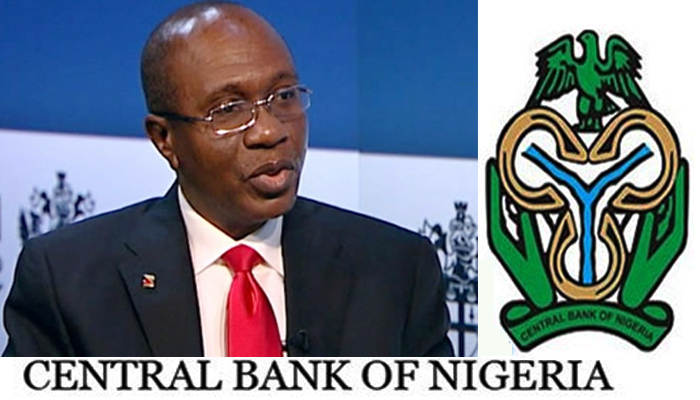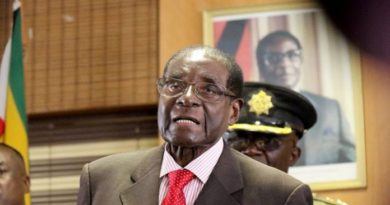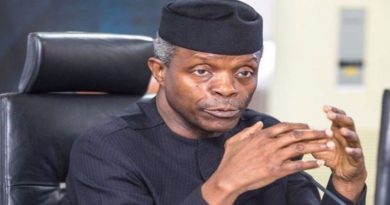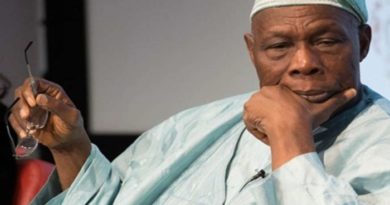CBN’s initiatives as roadmap to economic recovery
As we enter into the New Year, all eyes are on the Central Bank of Nigerian (CBN) and its administrative team to reshape and restructure the nation’s declining economy. NIYI OLAOYE in this analysis, therefore, x-rays the performances of the present administration with its various initiatives in taming the unwanted monster, ‘recession’.
The Central Bank of Nigeria (CBN) Act of 2007 charges the Bank with the overall control and administration of the monetary and financial sector policies in the country.
Although the four key objectives of the CBN include ensuring monetary and price stability; issue legal tender currency in Nigeria; maintain external reserves to safeguard the international value of the legal tender currency; promote a sound financial system in Nigeria; and act as banker and provide economic and financial advice to the Federal Government, the Bank has continued to perform major developmental functions, focused on all the key sectors of the economy.
Central banks in developing economies aim at the promotion and maintenance of a rising level of production, employment and real income in the country. This, they do, by working in alignment with the fiscal authorities for effective policy transmission.
True to his words, as part of its development finance function, the CBN has continued to pursue policies aimed at supporting critical sectors of the economy as Nigeria strives to grow its non-oil sector.
The CBN recently puts the value of its development finance interventions across the country at about N1.36 trillion. The CBN Governor, Mr. Godwin Emefiele recently emphasized that the central bank’s determination to improve lending to the real sector of the economy would stimulate employment generation and boost accretion to foreign reserves through non-oil exports.
No doubt, the sharp fall in crude oil prices since June 2014, has led to a significant drop in the country’s revenue and as well as the country’s external reserves. While the central bank has continued to manage the official naira exchange rate, the naira has fallen sharply on the parallel market. This heightened the call for a devaluation of the currency.
Emefiele and CBN
Emefiele took over the leadership of the Central Bank of Nigeria (CBN) at a time of a monetary policy dilemma. There were pressing needs for low interest rates stimulatory to the productive functions in the economy as well as high interest rates needed to attract foreign portfolio investments.
The challenge was for him to come up with a policymaking masterstroke that would address the desirable but conflicting objectives. The ability to do so however doesn’t reside exclusively within the realm of monetary policy.
Monetary policy has become a central tool in economic development everywhere in the world, as monetary authorities may engage it to direct resources to job creating activities in the real economy, drive investment inflow and address short-term changes in monetary aggregates to ensure price stability. Emefiele decided from start to move in the direction of economic development that would reinforce productive activities.
In his inaugural speech, he showed that he was out on a mission to drive economic development but with assurances to strive to extract macroeconomic stability in the process. This means he hopes to achieve domestic output growth as well as stability in the markets. Whatever the basis for that calculation hasn’t held its ground so far. His predecessor moved in the direction of monetary policy restraint that hurt domestic production but did spur portfolio inflow that enabled him to achieve short-term stability in the foreign exchange market.
By defining a production friendly monetary policy direction, Emefiele appears to have left the foreign exchange end of the financial markets nervous from day one. A low interest rate would be a big offence to portfolio traders that hold the key to short-term financial markets stability. The structural discord between productive activities and exchange rate movement clearly requires more than a monetary policy solution.
Nigeria operates an economy in which economic development places a destabilising weight on the external sector – warranting putting controls and raising barriers that consequently undermine the development objective. Such is, indeed, the frustration in monetary policy making in Nigeria, which calls for pragmatic approaches rather than a rule book treatment.
CBN governor’s policy choice to go the way of economic development is a genuine aspiration that cannot be faulted. A key function of a central bank in developing economies particularly is stimulating production to create employment and raise real incomes. In order to accomplish this, monetary policy needs supportive fiscal measures for it to ensure effective policy transmission.
Monetary policy isn’t going to accomplish much in isolation and Emefiele understands that quite well. That is why he identified quite early the need to work with the fiscal authorities to reduce structural distortions to productive growth and enhance access to credit. That much needed support from the fiscal authorities hasn’t happened so far. Emefiele is rightly pointing at delayed fiscal action as a major hindrance on his way.
Well ahead of time in July 2015, the CBN’s Monetary Policy Committee (MPC) alerted the nation that the economy was heading into recession and called for complimentary monetary and fiscal actions. The long delay in approving the 2016 budget clearly ignored the warning and the fiscal authority failed to provide the complimentary fiscal stimulus. This means that the action plan that was imperative to avert the recession failed mainly for lack of timely fiscal response.
Lamenting on the situation, Emefiele said the prolonged budget impasse denied the economy of the timely intervention. Consequently, CBN’s effort to keep the economy afloat was insufficient to avert economic contraction. The conditions that led to the contraction in the first quarter remained largely unresolved by the end of the second, he said.
The goals of increased employment and poverty reduction that he has given priority under his regime deserve all the attention. Taking new steps towards channelling credit to productive sectors of the economy represents effective strategy in attaining the defined goals.
To be effective, the credit needs to come at low interest rates – which appear to be ruled out amid the responses required to dress up the foreign exchange market. Emefiele now has to sacrifice his low interest rate intention to appease high return conscious portfolio traders.
That, however, isn’t the end of the road to his effort to prop up domestic production. He is making some headway through an effective engagement of CBN’s development banking capacity. In his inaugural speech, the Governor promised to review the development finance programme of the bank, strengthen the participatory agencies responsible for the disbursement of funds, develop performance targets and improve monitoring operations.
So far, CBN has taken steps to match action with words in the governor’s development financing drive. Putting in place policies aimed at supporting the non-oil sectors of the economy represents a way forward for an economy that can be said to have come to the end of the oil-paved road. CBN’s development finance interventions across the country are valued at about N1.36 trillion, definitely large enough to make a big impact if well managed.
Emefiele is assuring of the bank’s determination to build capacity in the real sector big enough to stimulate the production-consumption-employment multiplier chain. That will be an effective route to boost foreign direct investments and rebuild external reserve through non-oil exports.
By repositioning the developmental financing programmes of the bank, Emefiele is taking CBN to its key role as a central monetary institution, which is to act as a financial catalyst through coordinated interventions in key sectors of the economy. In this process, agriculture is expected to assume its proper place in the economy in terms of food production and employment deliveries.
Entrepreneurship development has got a boost from the CBN through the launching of Youth Innovative Entrepreneurship Development Programme earlier. The pilot phase of the programme has set a target of empowering 10,000 youth in productive activities in four years. The scheme offers a credit line of up to N3 million to each participant and access to other CBN sponsored schemes that would be granted to those who successfully operate the scheme.
The sum of N40 billion has been set aside for farmers from the N220 billion Micro, Small and Medium Enterprises Development Fund. The fund, which is to be disbursed at an interest rate of 9 per cent par annum, is targeted at creating economic linkages between over 600,000 smallholder farmers and reputable large-scale processors of agricultural products. This scheme could go a long way to enhance value added agricultural production, reduce seasonal scarcity of perishables and also improve capacity utilisation of integrated mills.
Also, the CBN’s N300 billion Real Sector Support Fund (RSSF) is a timely intervention at a time that industrial activity is facing serious difficulties. It is obvious that certain lines of business have become not viable in the present dispensation and therefore new lines of operations will have to be explored. RSSF will expectedly empower people venturing to exploit new opportunities in many areas of Nigeria’s economic potentials.
The use of intervention funds presents an alternative course of action in the face of inability to move generally in the direction of low interest rates. Emefiele did spell it out as his good intention to use low interest rates to spur domestic production. Even that statement of intention alone was sufficient to set the foreign exchange market astir. A low interest regime would mean farewell to high return seeking foreign portfolio investors that CBN needs desperately to keep the foreign exchange market stable in the short-term.
The low interest rate intention is clearly one policy that Emefiele cannot pursue as long as he is yet to find foreign direct investments large enough to reduce the significance of portfolio traders in exchange rate stability. The drop in crude oil price and consequently government revenue and external reserve has made portfolio inflow even more crucial in maintaining exchange rate stability. Therefore, the more the drop in crude oil price constrains government revenue, the more the low interest rate dream is fading.
With the drop in the crude oil price lingering for two and half years now, Emefiele has in his hands the most challenging job of managing the foreign exchange market. Exchange rate is everywhere a politically sensitive issue and therefore largely a political decision. Inflationary fears of exchange rate devaluation were frightening enough to warrant the soft pedalling approach of government and the apex bank. The resort to demand management by CBN would have been a sufficient response as it has been in the past had the crude oil price drop been short lived.
Nigeria is a country where foreigners seem to dictate domestic policy. Calls for naira devaluation filled the international space in consideration of only one side of the coin. Foreign investors, no doubt, need to see reasonable stability for portfolio inflow to grow but there was no consideration of the devastating effect of exchange rate induced domestic inflation on consumer spending. The CBN having bowed to pressure and exposed the naira to the full weight of market forces in a highly dependent economy, how to achieve macroeconomic stability has become the challenge.
It is apparent that CBN’s delay in letting the naira float was in consideration of both the domestic and external impacts and therefore in the best interest of the economy. The inflationary outburst now requires that Emefiele should abandon his accommodative monetary policy meant to stimulate domestic production and employment and change over to monetary tightening. Of course, he needs to keep real interest rate in the positive territory in order to avoid distortions in the financial markets.
Through the challenges, the Emefiele-led CBN has taken some good steps in managing the foreign exchange market such as closing the RDAS/WDAS foreign exchange window. This follows the emergence of undesirable practices to exploit arbitrage opportunities through round-tripping, spurious demand and inefficient use of foreign exchange resources.
The bank thereafter stopped the weekly sale of foreign exchange to bureau de change operators. It also excluded 41 items of which it said Nigeria has the potentials for increased local production from accessing foreign exchange at its official window. This has no doubt created shortages in the short-term, which has offered a big opportunity to build domestic output capacity in the areas affected in the medium-term.




